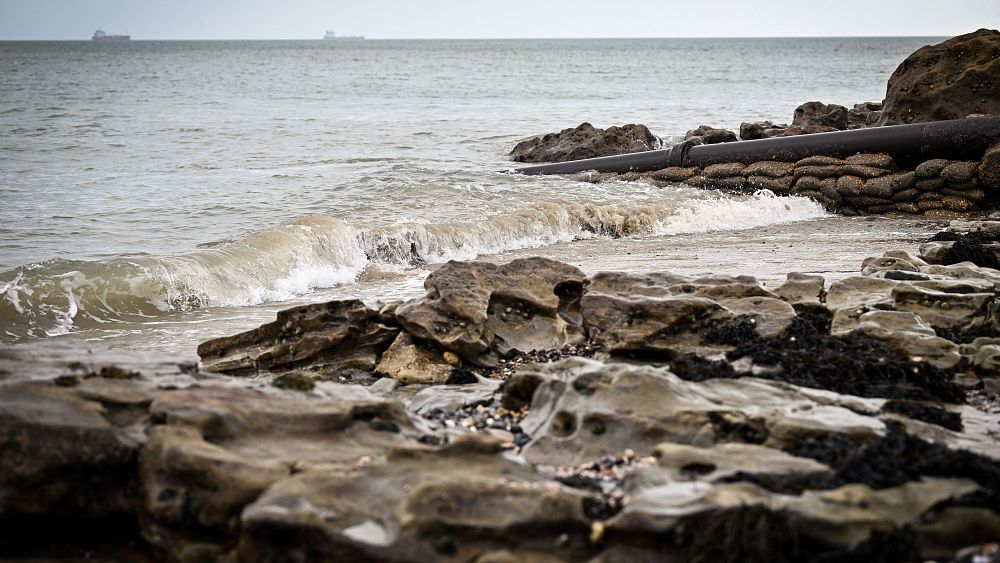Before making travel plans to visit the UK’s popular Isle of Wight, make sure you are up to date on sewage pollution.
The issue is prevalent in the UNESCO Biosphere Reserve and has made some beach-goers sick.
"We are on Ryde Beach. It's my local beach and absolutely gorgeous - but there's a discharge point," says local mother Chani Kind, pointing at the submerged pipeline that pumps raw sewage into coastal waters.
The view is not only disappointing on the sandy beaches, packed in summer with tourists and yachting enthusiasts, but also endangers beach-goers.
Chani, 40, who is also a spokeswoman for UK charity group Surfers Against Sewage, says her son caught gastroenteritis - a bacterial or viral stomach bug that causes diarrhoea and vomiting - after swimming in the sea last summer.
How does human waste end up on the beach?
British sewage systems, which date back to the Victorian era, are designed to discharge surpluses into the sea in the event of heavy rain, to avoid clogging of pipes in homes.
But the water companies are accused of discharging untreated wastewater regularly, even in the midst of drought, and of not having invested in adapting their network to the growth of the population.
How canbeachgoers avoid getting sick?
A number of beaches had to be closed during last year's summer heatwave due to the high proportion of bacteria from water pollution.
UK charity Surfers Against Sewage recently published a list of 83 beaches to avoid in Britain due to the discharge of raw sewage.
They also started running a real-time map to keep visitors informed about the polluted areas.
“People are getting sick,” says Chani. She advises beachgoers to report incidents on the Surfers Against Sewage's Safer Seas & Rivers Service app. The data they collect goes into their water quality reports and aims to contribute to fixing the problem, she explains.
The mayor of Ryde Michael Lilley says the problem is partly caused by underinvestment in water infrastructure, alongside insufficient regulation. He is also worried about tourism on the island, which was named a UNESCO Biosphere Reserve in 2019, making it a learning place for sustainable development.
"Would you want to swim in sewage? Right? We are a seaside town," says Lilley. "People come and swim in our sea. And therefore they're not going to come if they know that there's sewage floating in our sea, so we need to do something about it."
A long time solution is on the horizon
On the island, private utility company Southern Water has come under fire in recent years for the number of sewage discharges into public water.
It says it is coming up with solutions “to stop and slow surface and groundwater reaching the sewer system” as part of a £50m [€45.9m] investment between now and spring 2025.
But the problem doesn’t stop at the shores of this island. The rising public anger over the dumping of untreated sewage into Britain’s rivers and oceans has recently led to the government announcing its latest plan to protect water supplies.
Under its ‘Plan for Water’, the government will seek more investment from water companies, stronger regulation and tougher fines for polluters, and bring forward infrastructure spending.
Yet campaigners and opposition politicians have condemned the announcement as little more than lip service.
Watch the video above to learn more about this story.


